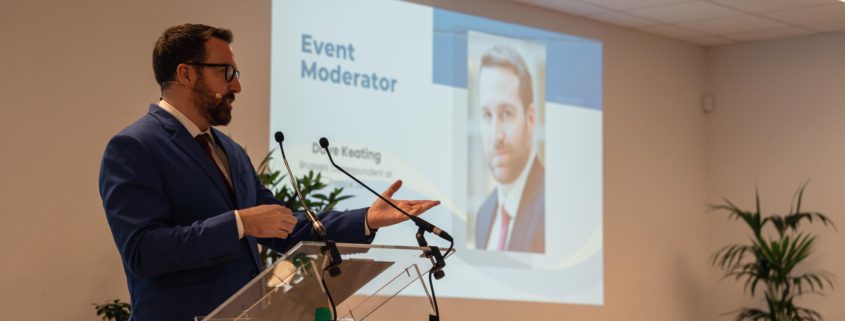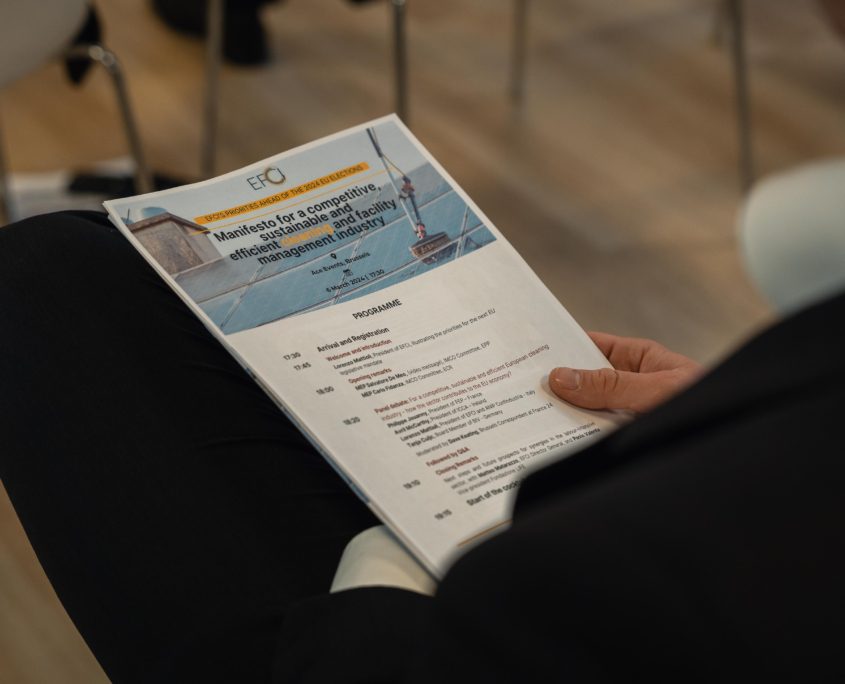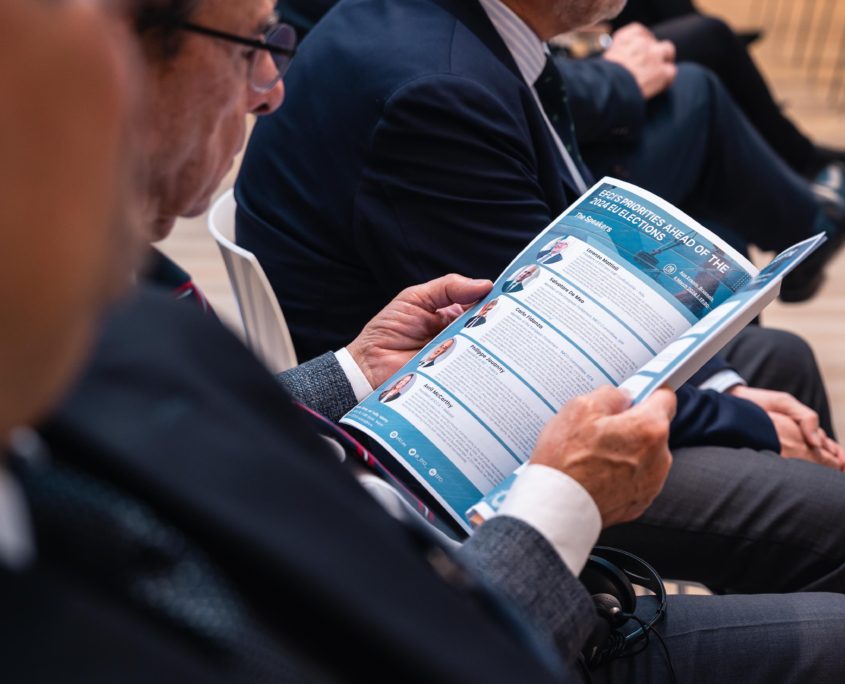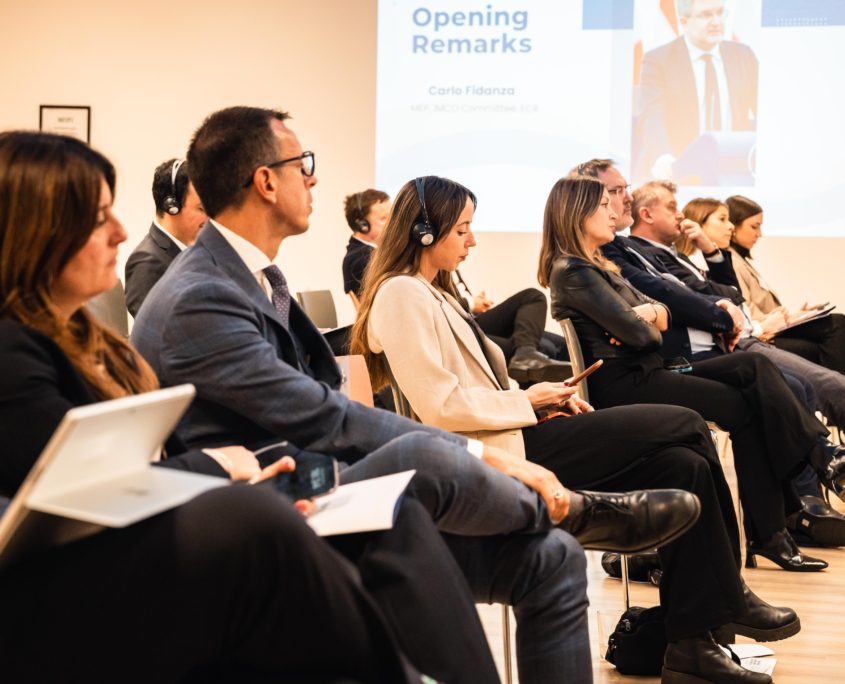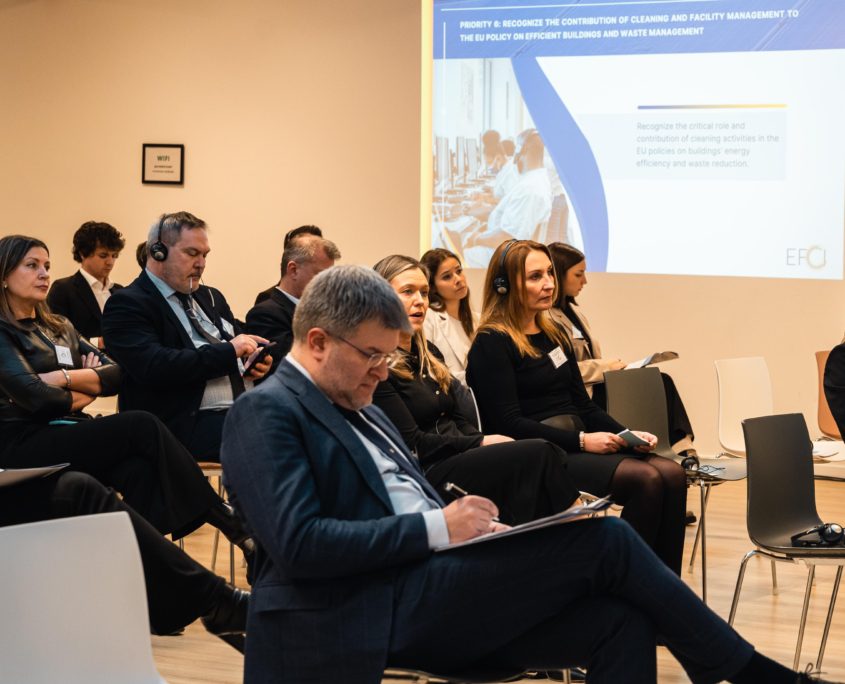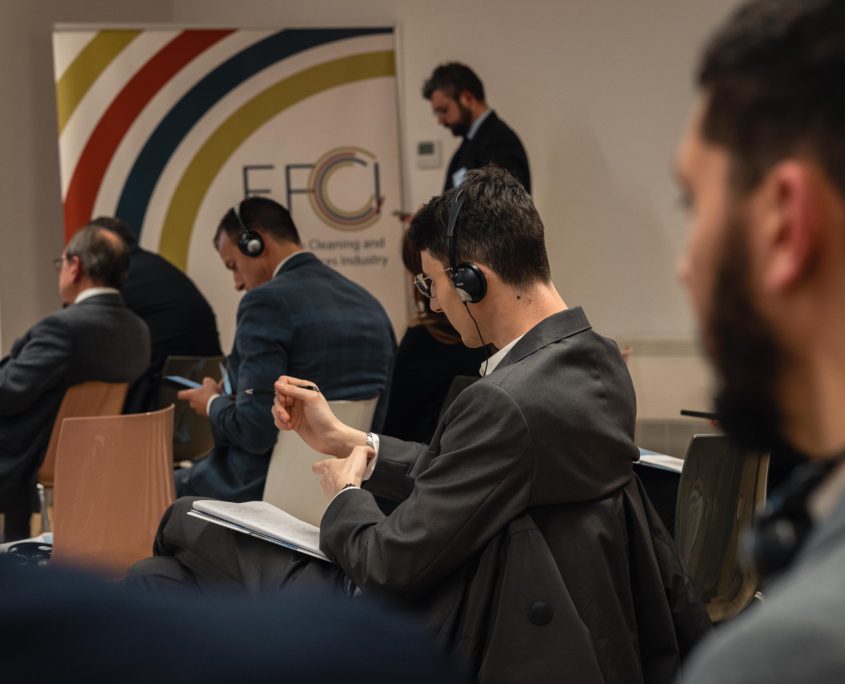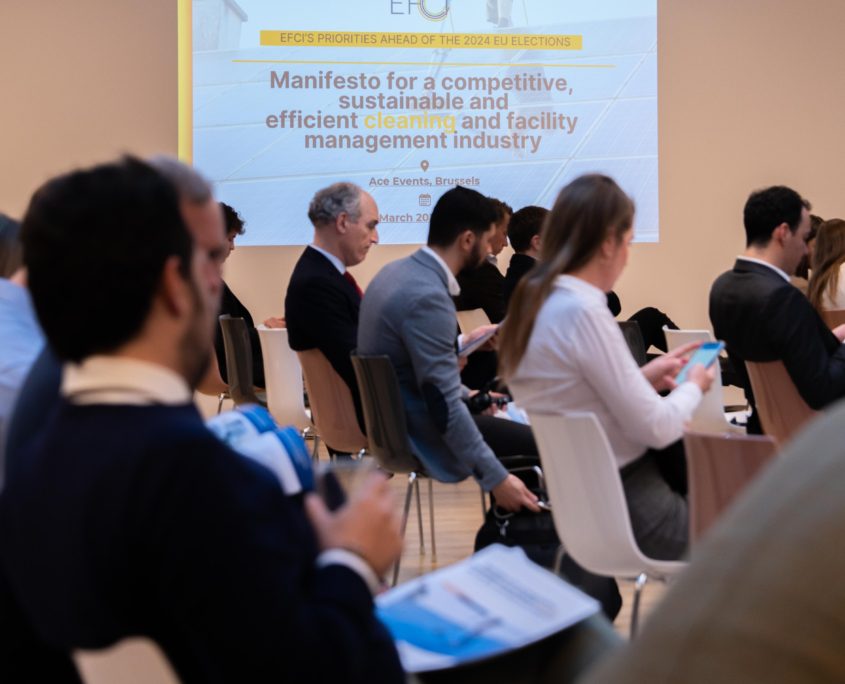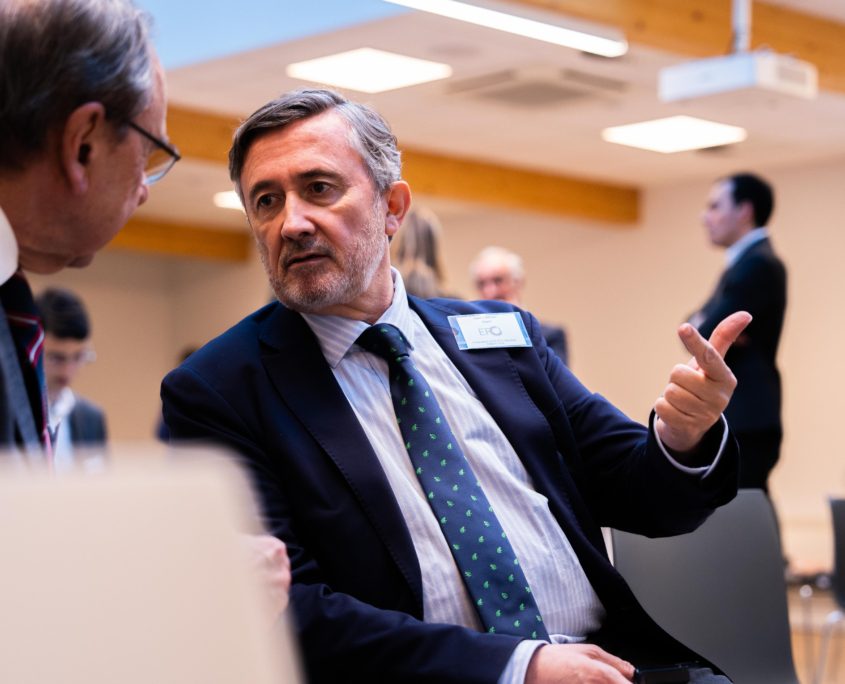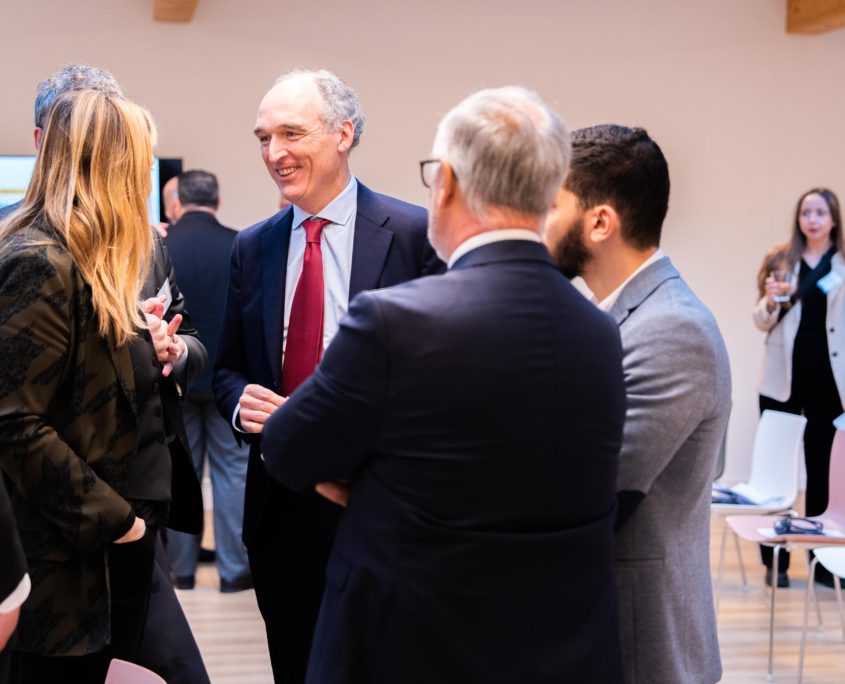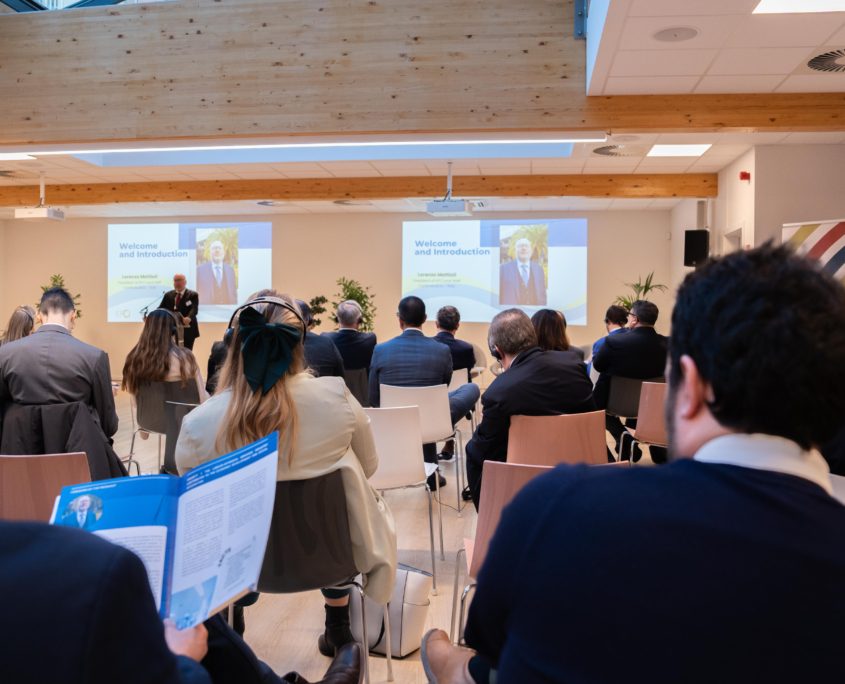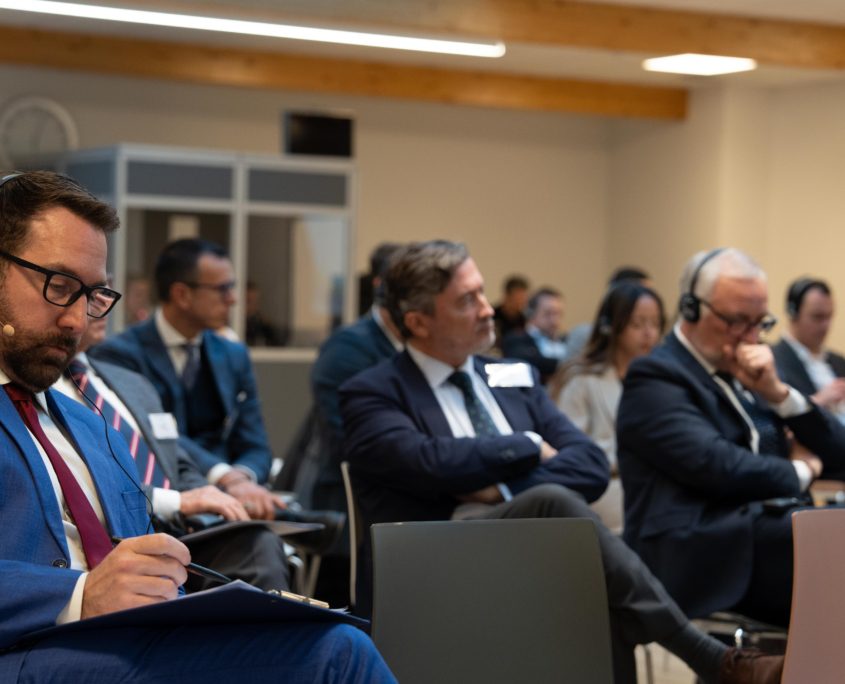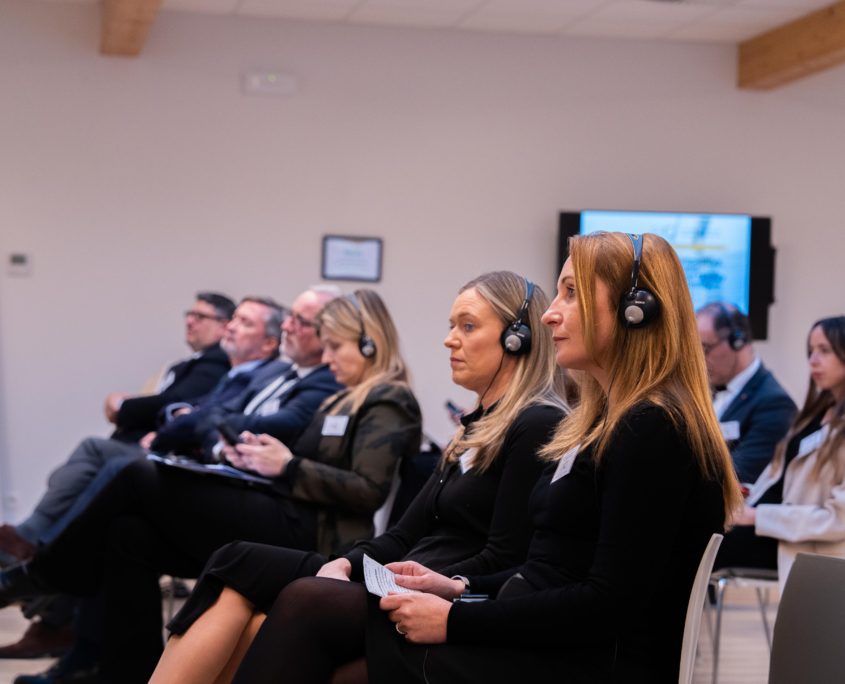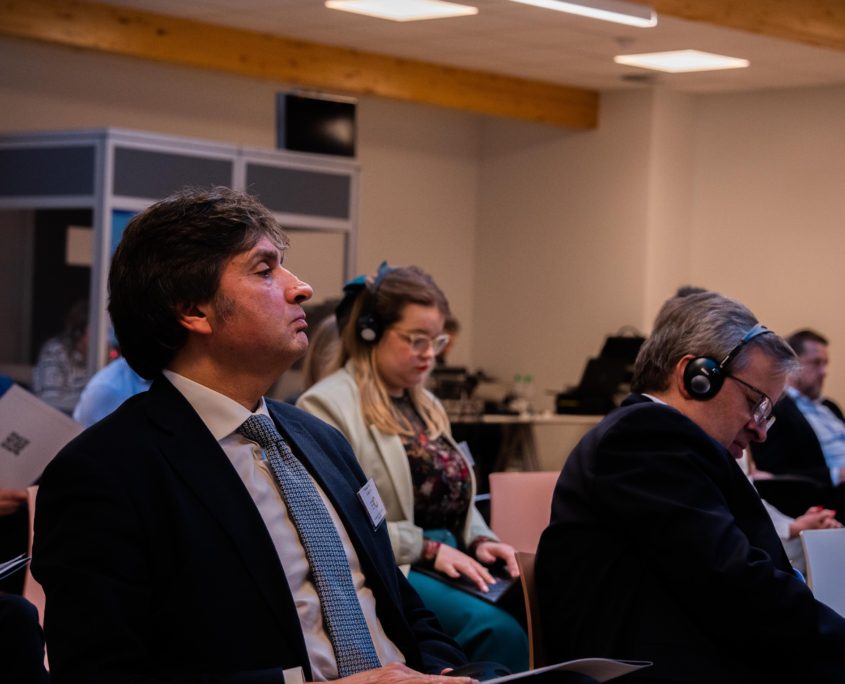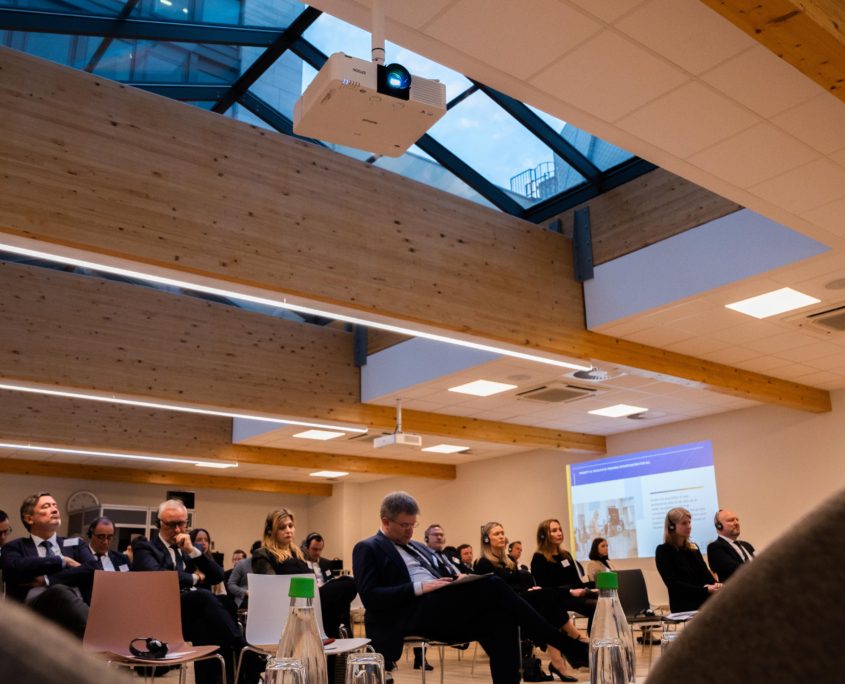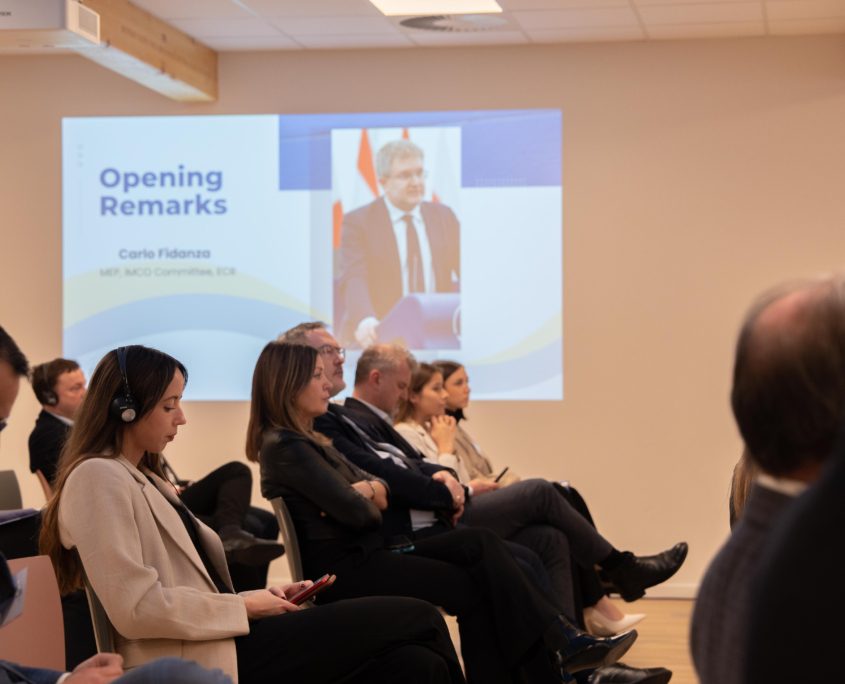The European cleaning industry presents its Manifesto for the next EU institutional cycle in Brussels
Brussels – on March 6th EFCI, the European federation representing the cleaning and facility management industry organized an event to present its Manifesto ahead of the European elections of next June. More than 50guests, including policymakers, representatives of the business community and social partner organizations gathered in Brussels to participate in a presentation of this document, illustrating the points that the industry requires from policymakers to deliver upon in the next EU legislature. The eight priorities cover different policy domains, that are equally relevant to guaranteeing that the cleaning industry can continue contributing to Europe’s economic growth, prosperity and collective well-being.
Focusing on the priorities
EFCI’s President Lorenzo Mattioli opened the event with a detailed presentation of the different points, which included sector-specific issues and considerations that are common to the wider EU business community.

The items covered are the following:
- The recognition of the industry’s contribution to economic development, social integration, and employment, in the wider context of the specific role of labour-intensive services industry, ensured by the creation of a specific portfolio within the European Commission for the labour-intensive service industry.
- A call for the integration of regular cleaning and sanitizing services into the future development of the EU public health and emergency preparedness policies;
- A revision of the Propose a revision of EU public procurement provisions tailored to the specificities of labor-intensive services that includes price-revision mechanisms.
- The adoption by future policymakers of a new approach to business legislation that supports entrepreneurship and removes unnecessary administrative and regulatory burdens.
- Accompanying the transition of the industry to greener practices within a different, more business-friendly regulatory context that recognizes the efforts made and supports further improvement.
- The recognition of the critical role and contribution of cleaning activities in the EU policies on buildings’ energy efficiency and waste reduction.
- Reinforcing the political commitment to supporting the EU social dialogue and safeguarding social partners’ autonomy and initiative in the new social policy agenda.
- Enabling Enable the acquisition of new professional skills for all, also via an easier recognition of informal competences and facilitating the access to training opportunities to all actors and support increasing the attractiveness of the sector.

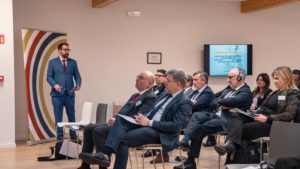
“With a yearly turnover of 120 billion € and more than 4 million employees active in the sector, the industry we represent is a major contributor to EU’s economy. After demonstrating so clearly what we have done to support the European recovery, it is now time that the services we provided stopped being considered a commodity, and that policymakers at every level – in our respective home countries as well as here in Brussels – started granting the right political attention to our sector”, concluded President Mattioli in his presentation.
A contribution from policymakers
After this presentation, MEPs De Meo (EPP) and Fidanza (ECR) took the floor – via a video-message and in presence respectively – to express their support to the priorities raised in the Manifesto by the industry. In particular, MEP De Meo stressed the need for a new legislative approach during the next legislative term that might look with more pragmatism and a less ideological view to the challenges of the enterprise in Europe, while MEP Fidanza focused on the prospects of a different take on environmental topics and a greater attention to the needs of SMEs. MEP Fidanza finally agreed on the necessity for the next Commission to duly take into account the specificity of the labour-intensive services industry, creating appropriate structures (both at College and operational level) allowing for an easier and more immediate policy interaction.
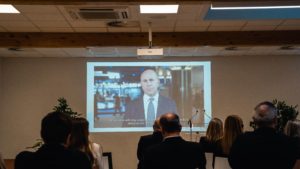
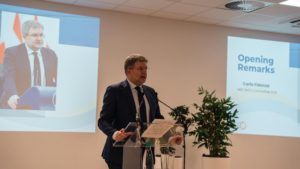
Discussing different views of the industry representatives
Moderated by Dave Keating, Brussels correspondent of France 24, a debate animated by some representatives of the industry followed. Panelists to the debate were Philippe Jouanny, President of the French association of the cleaning industries FEP, Avril McCarthy, Chairwoman of the Irish Contract Cleaning Association ICCA, Tanja Cuijc, Board Member of BIV – the German federation of the cleaning industry and President Lorenzo Mattioli. The four representatives of EFCI delved into the various priorities identified in the Manifesto, and exchanged with the public in an interesting Q&A session that highlighted the common traits with the other dimensions and sectors of the economy and illustrated different realities in the relevant EU countries.
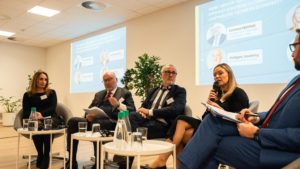
Looking into the future and developing new synergies
In conclusion, Director General Matteo Matarazzo closed the event with some final remarks on the next steps and further developments of this presentation initiative, to be complemented in the coming months by additional presentation opportunities in other public events and with the new political representatives who will be called to political roles after the elections in June. Finally, a presentation was given by Mr. Paolo Valente on the Italian initiative of the Life Foundation, an association promoting the visibility and recognition of the facility management industry in Italy (of which ANIP is a founding member) that represents one concrete example of structural cooperation in the labour-intensive services industry. Among the different initiatives launched by the foundation, the organization of a yearly gathering to discuss the reality of a changing facility management sector. This presentation represented the occasion to announce that the next edition of the LIFE event will take place in Brussels in November 2024, offering yet another opportunity to interact with the new European institutional framework.
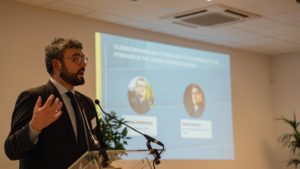
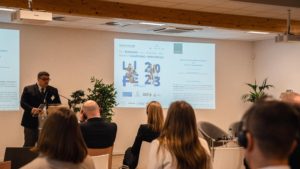
You can download the Manifesto here. Pdf available in different languages such as french, italian and portuguese.

